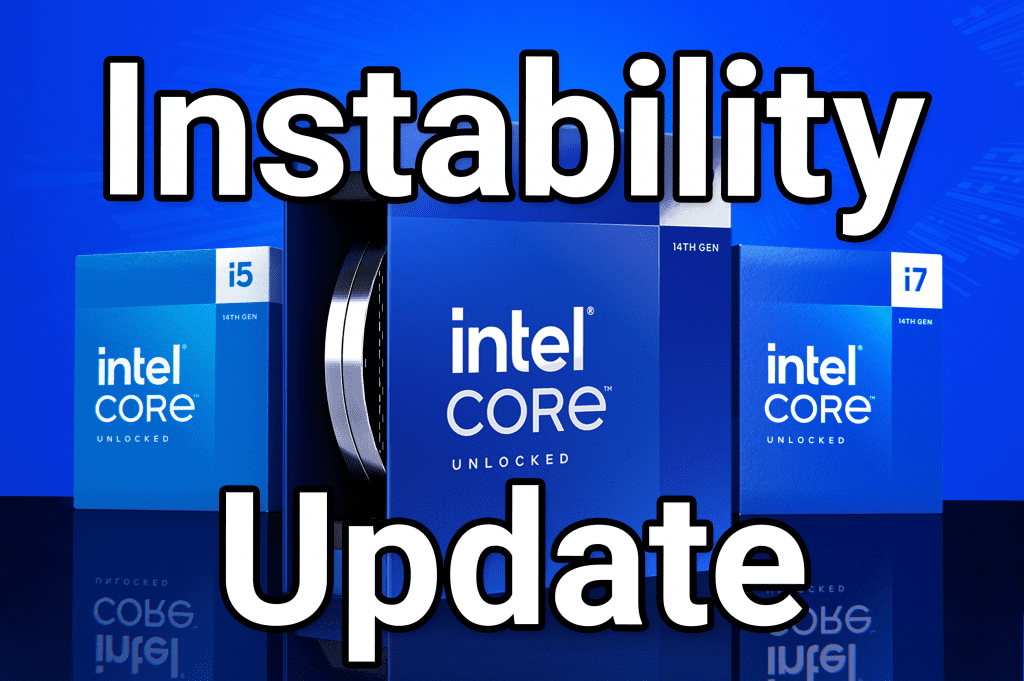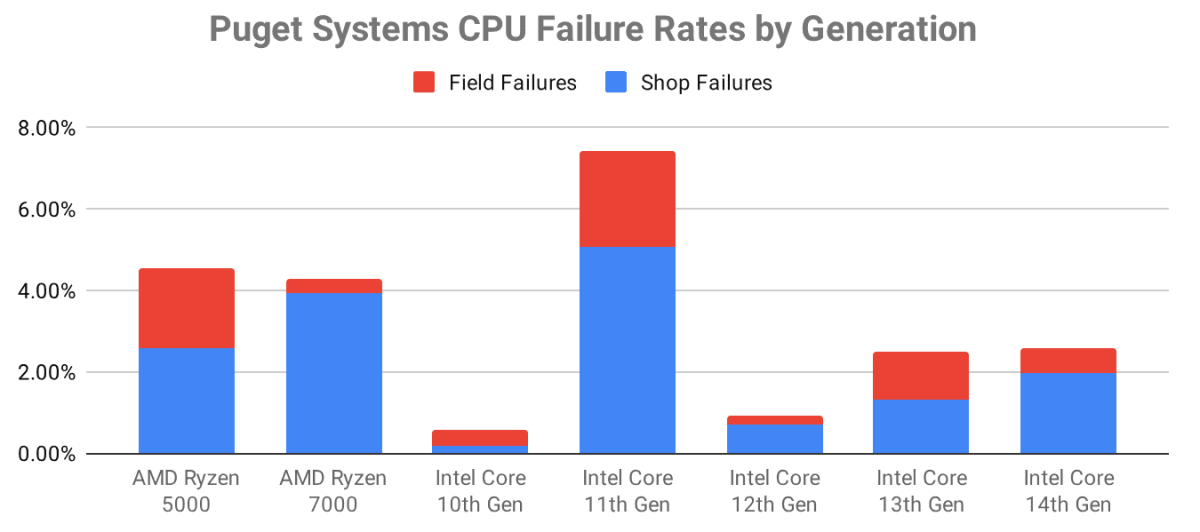SpyderTracks
We love you Ukraine
What annoyed me about the pugent systems data was that they implicitly suggest that applying proper voltage limits reduces failures. Purely from a logical stance, that makes very little sense to me, what’s more logical is that it delays failures past their testing window.Steve needs a holiday after that 😖
I did notice at the end that Steve mentioned a PugetSystems article on their experiences (as a system builder), and was very interesting to me as I use PugetSystems as my multi-media benchmarking source, and if their ratios carry over to the wider population then it puts these current levels of failures into perspective vs other generations...assuming PugetSystems are not using bespoke settings for voltages, etc.

Puget Systems' Perspective on Intel CPU Instability Issues
You may have heard about instability issues with Intel Core 13th and 14th Gen desktop processors. The issue has been gaining more attention as time goes on. I am posting to share what we've experienced here at Puget Systems, and what we're doing about it.www.pugetsystems.com



